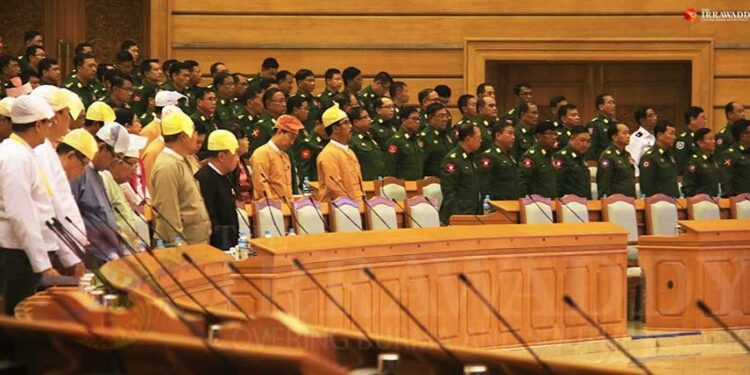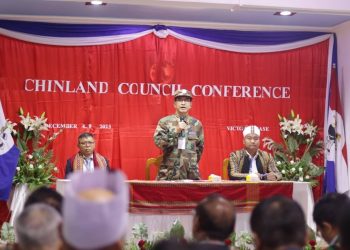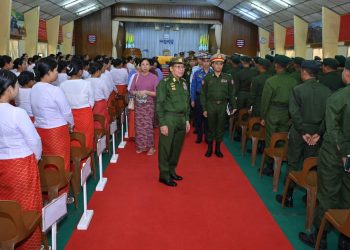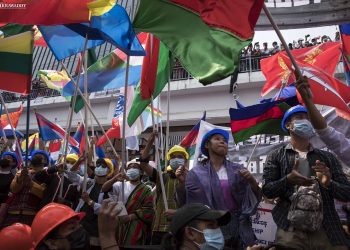YANGON—The Union Parliament’s Charter Amendment Committee—tasked with making the military-drafted Constitution democratic—has put forward more than 3,700 recommendations for various changes to provisions of the Constitution, suggesting amendments, additions and/or repeals.
In protest of the ruling National League for Democracy (NLD) party and other parties’ efforts to amend the Constitution, the military has rejected the committee’s recommendations.
The 45-member committee—with representatives from 14 political parties, including independents and the military’s 25 percent bloc in Parliament—has been reviewing the entire Constitution for possible amendments, chapter by chapter, since February.
On Monday, it submitted a report on its findings to the Parliament that included a total of 3,765 recommendations, collected from each party during the committee’s meetings.
The military representatives on the committee took part but made no proposals over the committee’s 25 meetings, standing with their original three points, which committee secretary U Myat Nyana Soe read out on Monday.
Their stance is that they didn’t approve the formation of the committee to begin with because “it breached the constitutional rules,” they say. They joined out of respect for the decision of Parliament, which approved the committee’s formation, but insist all committee procedures “violate the constitution.”
In the committee’s report, the Shan Nationalities League for Democracy proposed a total of 1,112 changes, the most of any party; the NLD proposed 114 changes; the Arakan National Party ANP proposed 858 changes; Mon National Party proposed 641 changes; the Ta’ang (Palaung) National Party proposed 178 changes; the Pao National Organization proposed 140 changes; the Kachin State Democracy Party proposed 111 changes; the Zomi Congress for Democracy proposed 53 changes and the Union Solidarity and Development Party proposed 10 changes.
The formation of the committee was the NLD’s first official attempt to amend the Constitution since it took power in 2016. The move has drawn strong resistance from military appointees in Parliament and the military-backed Union Solidarity and Development Party.
Despite the military often claiming it is not opposed to constitutional reforms, the military— which sees its main duty as safeguarding the Constitution, which guarantees that it maintains an important leadership role—has warned that amendments should not harm the essence of the Constitution.
Prominent democracy activists U Min Ko Naing, U Jimmy and Daw Nilar Thein from the 88 Generation Peace and Open Society also attended the Monday parliamentary session as visitors to show support for the Parliament’s constitutional reforms.
Prior to the 2015 general election, the 88 Generation group and the NLD jointly pushed for constitutional reforms through a nationwide signature campaign that collected more than 5 million signatures. But those efforts have been thwarted by the military.
The NLD-dominated Parliament will discuss the committee’s report in the coming weeks. Afterwards, the committee will draft an amending bill to the Constitution. But amending the Constitution requires the approval of more than 75 percent of all lawmakers, 25 percent of which are military-appointed, giving the military de facto veto power over any proposed change.
You may also like these stories:
Parliament’s Constitution Amendment Panel Completes Review of Charter
USDP and Military Propose 4 New Charter Amendments
Referendum on Military-Drafted Constitution Pursued Amid Cyclone Devastation

















